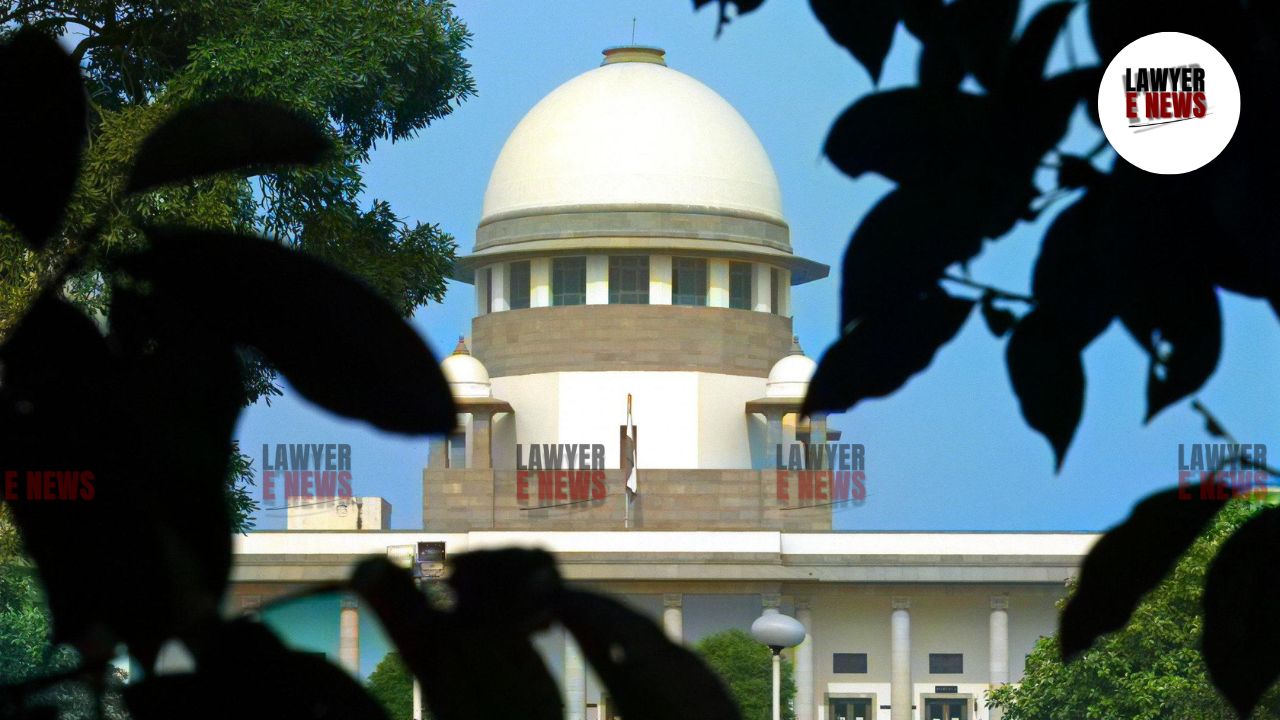-
by Admin
16 February 2026 1:47 PM



Directing Another Expert Report While Investigation is Ongoing is Patently Illegal and Prejudicial - In a notable judgment delivered Supreme Court of India held that the High Court erred by directing the Investigating Officer (I.O.) to procure a second expert opinion after already having received a forensic expert report as part of an ongoing investigation. The Court categorically set aside such a direction, stressing that investigative discretion should not be curtailed by judicial interference.
The Bench comprising Justice Pankaj Mithal and Justice S.V.N. Bhatti observed: “Directing a particular course of action by the High Court in the facts and circumstances of the case is untenable.”
The appellant, Lin-O-Matic Graphic Industries, had lodged a criminal complaint alleging theft of design drawings of its book-binding machines and consequent copyright infringement. The FIR invoked offences under multiple statutes including IPC Sections 380, 381, 405, 408, 120-B, Section 63 of the Copyright Act, 1957, and Sections 66, 66B, 72, 85 of the Information Technology Act, 2000.
The High Court initially directed an expert examination through the Forensic Science Laboratory (FSL) along with an independent engineer. The investigation resulted in a report dated 21.03.2019. However, dissatisfied with the report, the respondents filed an application in the disposed of proceedings seeking a fresh expert opinion.
The High Court, without disturbing the first report, still directed the I.O. to obtain another expert opinion, leading to the present appeal.
The Supreme Court found this dual approach of the High Court flawed: “The High Court on the one hand records favourable findings in favour of the appellant and declined to set aside the report dated 21.03.2019; while on the other hand directs the I.O. to invite another expert for additional opinion. This is inherently contradictory.”
The Bench sharply underlined that such a course would compromise investigative neutrality: “The said finding would necessarily compel the I.O. to assume a particular state of affairs and proceed to investigate the matter further and reach a conclusion. In such an eventuality, respondent Nos.1 to 3 would be subjected to prejudice.”
The Court also held that respondents were at liberty to raise objections: “Respondent(s) are not bound by the view expressed in the opinion dated 21.03.2019 at any stage including at the present stage. They are entitled to bring to the notice of the I.O. the nuances or objections they have on the report.”
But the decision whether to seek another expert opinion lies solely with the I.O.: “The I.O. is free to obtain an opinion of an expert in compliance with the requirements of law if it is warranted in his discretionary power.”
The Court, relying on its precedents in Hari Singh Mann vs. Harbhajan Singh Bajwa, (2001) 1 SCC 169 and Nazma vs. Javed Alias Anjum, (2013) 1 SCC 376, reiterated: “The course adopted by the High Court directing the I.O. to procure a second expert opinion while the investigation was yet incomplete is patently unsustainable.”
It further emphasized that courts cannot direct parallel expert reports during the pendency of investigation: “Inviting another expert opinion or report would result in confusion or prejudice to one or the other party.”
The Supreme Court categorically set aside the impugned directions issued by the High Court: “The directions/findings in Para ‘9’ of the impugned order warrant our interference and are set aside.”
In effect, the judgment safeguards the autonomy of the Investigating Officer to independently assess whether additional expert inputs are needed and affirms that the accused’s remedies lie in challenging the investigation through legitimate procedural means, not by seeking preemptive judicial directions.
Date of Decision: 18 March 2025
